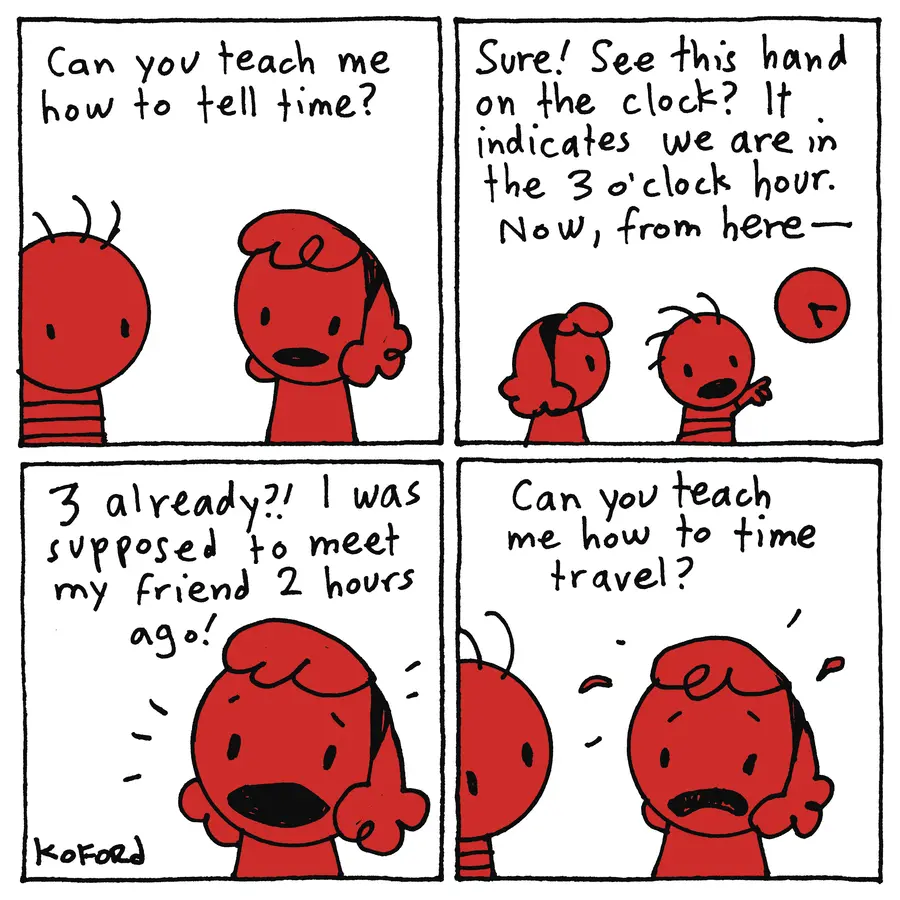this post was submitted on 15 Jul 2024
256 points (91.3% liked)
Comic Strips
12544 readers
3164 users here now
Comic Strips is a community for those who love comic stories.
The rules are simple:
- The post can be a single image, an image gallery, or a link to a specific comic hosted on another site (the author's website, for instance).
- The comic must be a complete story.
- If it is an external link, it must be to a specific story, not to the root of the site.
- You may post comics from others or your own.
- If you are posting a comic of your own, a maximum of one per week is allowed (I know, your comics are great, but this rule helps avoid spam).
- The comic can be in any language, but if it's not in English, OP must include an English translation in the post's 'body' field (note: you don't need to select a specific language when posting a comic).
- Politeness.
- Adult content is not allowed. This community aims to be fun for people of all ages.
Web of links
- !linuxmemes@lemmy.world: "I use Arch btw"
- !memes@lemmy.world: memes (you don't say!)
founded 1 year ago
MODERATORS
you are viewing a single comment's thread
view the rest of the comments
view the rest of the comments

With digital clocks.
Highschool I can understand, but how did she make it out of 1st grade when they teach you how to read a clock?
As a millennial i can read analoge time and i do love the look of mechanical clockwork. But whenever i actually have to read time on them i get this carsick feeling. I do not like interpreting it.
Someone who grew up on phones has digital time in their pocket at all times. There is zero reinforcement outside school teachings for such.
Back in the olden days, we learned basic fractions before we learned to tell time, so we learned to think in quarters and halves of an hour. When I see a clock face, I usually just look to see what part of the hour we're in without necessarily knowing what specific minute we're at. "Oh, it's nearly half passed," is usually good enough, rather than having to be exact, "Oh, it's 4:28pm precisely." I suppose things have changed a lot since then -- when I was in school we were too busy hiding from dinosaurs to learn much else!
I suppose that's a good theory, a lot probably has to do with our own habits of compartmentalizing time. "nearly half passed" feels weird to say for what i perceive as the second mark of a 6 long cycle or almost the third mark. Grouping minutes per 10 is very decimal system, i think i learned fractions together with clock-faces in second grade so you had to learn both at the same time while digital notations just clicked and translated better to the clock based but still decimal math questions.
When you get to minutes i am picking digital as the clear biased winner based on viewing angles in bad clock design alone, to many minutes have been wasted trying to figure them out.
It's a surprisingly useless skill in the modern day if you have a digital watch. Most people just use their phone or a smart watch and those show time with plain digits so there's no interpretation. I forgot how to read an analogue clock face for the longest time, bought a classic watch recently and have picked up the skill again but if I didn't then I'd never use it and I'd forget it again. Despite what some people think not all skills are unforgettable, it's just a matter of how useful it is day to day over a long period.